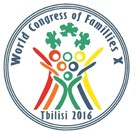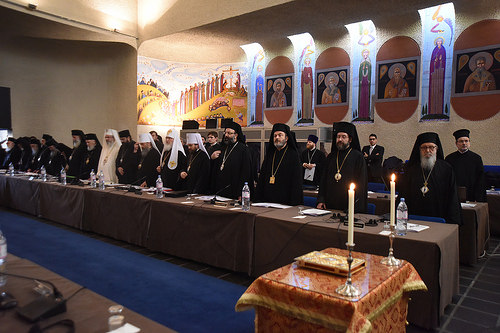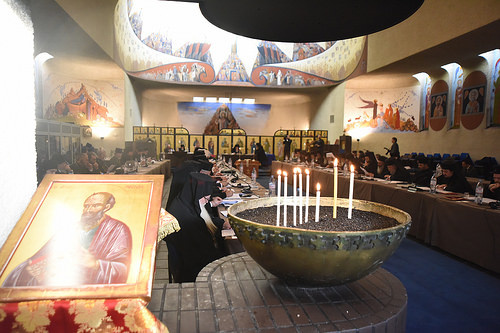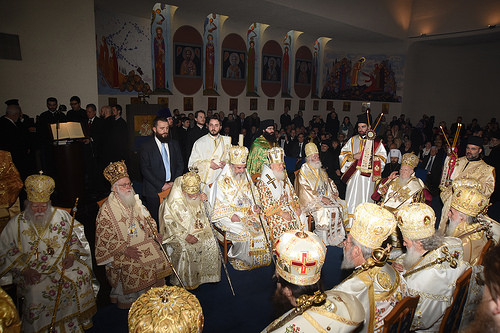As many will have noticed, Georgia’s Constitutional Court in late 2017 ruled that consumption of cannabis and cannabis-derived products was no longer to be considered a criminal matter, and that the previous regime of incarceration of people found in possession of cannabis (which could be up to 7 years) would be abolished. Administrative fines were retained as an option for punishment. Even many very conservative people agreed with this ruling, as ruining a young person’s life with imprisonment amongst hardened criminals, as penalty for poor judgement and fairly commonplace juvenile risk-taking behaviour, seemed excessively harsh. Indeed Georgian Patriarch Ilia II in his Christmas homily explicitly asked for greater tolerance of drug addicts by Georgian society and the justice system. He however reiterated the Church’s view that drug addiction is a terrible scourge upon Georgia’s youth and that drug education programmes are urgently needed to warn youth of the risks of drug use, including cannabis.

In July 2018, a further case was heard by the Constitutional Court to the effect that administrative fines for cannabis possession and consumption should also be abolished, based on the argument that cannabis users hurt only themselves and no other parties. The Constitutional Court agreed with this argument and ruled that administrative fines for simple possession were no longer lawful.
This was widely reported as “legalisation” of cannabis, but in spite of this, cultivation and distribution of cannabis remained in a grey area of the law. Elements within the ruling party structure saw a business opportunity to be exploited and lobbied the parliamentary majority to explicitly legalise the commercial production of cannabis in Georgia and its export and distribution in foreign countries.
The parties in question probably believed they could avoid a backlash from the Georgian Church and other conservative elements in Georgia by:
(1) Insisting that cultivation by private companies be restricted by strict licensing regime, instead of a free-for-all homegrown cottage industry developing.
(2) Proclaiming that cannabis produced over-quota would be destroyed under government supervision, rather than being released onto the local market.
(3) Production to be restricted to export markets (mostly certain EU member states permitting distribution and consumption), so that any health and societal risks attributable to cannabis use would be restricted to “degenerate foreigners”, instead of Georgia’s youth.
Imagine their surprise that this course of action caused near-universal outcry in Georgian society. Libertarian elements were outraged that grow-your-own models and cottage industries would be banned in favour of corporate cannabis farms owned by politically-connected corporations. Churchgoers did not have any faith that there would be no “leakage” of product over the farm gate into the domestic market, where it could be consumed by local youth, which the Patriarch later reiterated. A large proportion of Georgian people felt that their country would develop a bad reputation for hedonism and licentiousness that did not reflect its conservative Christian norms.
Patriarch Ilia’s sermon on August 5 was quite unambiguous
“The decision on legalization of marijuana consumption caused a big concern in Georgia. This is a big mistake. We should remember that permission for drug consumption is hostility towards our nation. I am convinced that those people, who granted this permission do not agree with it themselves, but due to high pressure they were forced to take it…..We must not forget that if we allow drugs, we should allow drug sale and drug production. This will lead to setting up drug center here, as young people from neighboring countries having such interests will arrive in Georgia. Therefore, I call on everyone, first of all on the government, intellectuals and young people to take care of our homeland and our children”
Large protest marches attended by hundreds of people in the capital on September 16, including clergy, demonstrated the opposition of the people to this commercial cultivation legislation under consideration
In the face of this public opposition, the government backed down from its proposal to license cultivation of cannabis on September 17 and has stated that more public consultation is required before legislation can be tabled. Nonetheless they maintain that they are in the right, the public is being “misinformed” by various parties and that this is only a problem of perception.
An important local context is the recent trend of teenagers and young adults taking “party drugs” at nightclubs and electronic music festivals, with multiple fatalities recorded every month. In a country of only 3.7 million people, such deaths incite great trepidation into the hearts of citizens, particularly the parents of youth worried about their children’s welfare and safety in an uncertain world.
This is one of many issues associated with Georgia’s modernisation and opening up to the outside world. It is also part of the constant tension in any civilisation between the need to grant people the freedom to make their own mistakes and live with the consequences of their actions, and the need to protect the young and vulnerable.
The cannabis lobby have been very active in Georgia for over a decade. As low-THC cannabis grows wild in the hills, it is not hard for people to obtain, but modern commercial cannabis varieties have a high concentration of THC (up to 10 times higher) and a much more potent effect. The arguments for cannabis use, and counterarguments, include:
- It is helpful for sufferers of glaucoma, cancer and post-operative patients dealing with pain (There is evidence to that effect, and under some circumstances prescription of medical marijuana might be indicated).
- It is less harmful than tobacco (not true, much higher tar content than tobacco)
- It has a neutral or positive effect upon mood (people with a genetic predisposition to schizophrenia are far more likely to develop clinical schizophrenia after using cannabis than those who abstain).
- There is no relationship between light drugs like cannabis and more harmful drugs like heroin (people under the effect of cannabis experimenting with other drugs find opiates to be far more enjoyable, and hence addictive, than those trying opiates without cannabis in their system.)
The role cannabis plays as a gateway drug for other more dangerous intoxicants is a concern.
Regardless of one’s views on full legalisation and legitimisation of the cannabis industry, it is of great importance that education on the risks of drug taking, including alcohol and tobacco, be available to young people throughout the country. The Patriarchate is playing a role in this and there is scope for schools and secular organisations to play a bigger role in providing youngsters with legitimate information, so they may make wise and informed choices.






























